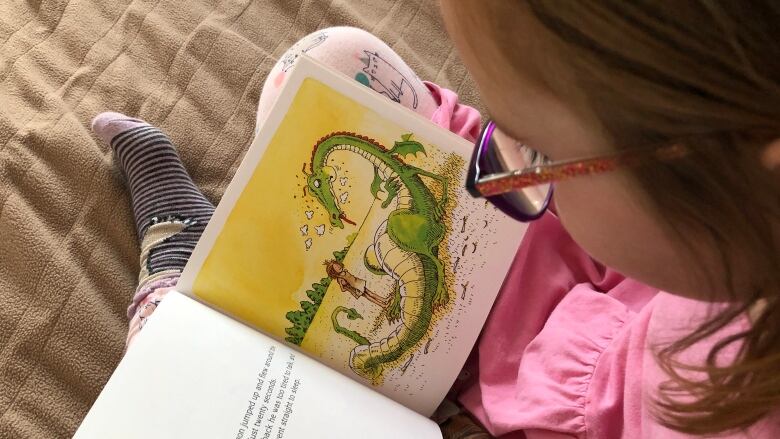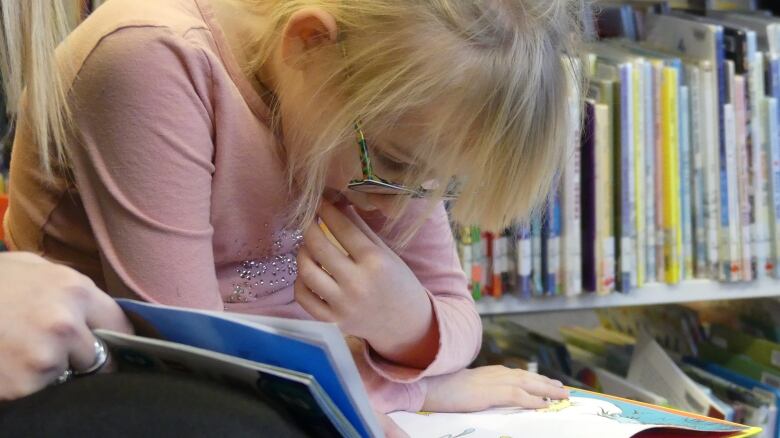Literacy advocates worry some children will fall behind
About 20 per cent of children were struggling to read before the pandemic

Literacy advocates in New Brunswick are concerned children's development may fall behind during the pandemic.
Julie Smith, executive director of Elementary Literacy Inc., said while some kids may be using reading as an escape during the pandemic, it's not the case for everyone.
"A lot of them are resisting, especially if they were lacking the confidence before and especially if there's stress in the family," Smith said.
Elementary Literacy Inc. is an organization that teaches children who are struggling how to read.
Prior to the pandemic, about 20 per cent of children in the province weren't meeting the standards for literacy, Smith said.
In the summer, children who are weaker readers are vulnerable to losing skills they learned during the school year.
Now that children are studying from home, Smith worries children who were struggling to read may fall further behind.
"Given that we're talking about possibly almost three times of summer, there are going to be kids who are sliding backwards."
Lynda Homer, executive director of the Literacy Coalition of New Brunswick, is also worried.
"My biggest concern is for the students where the family situation is not as good for homeschooling or they don't have an easy connection to the internet or children who have been struggling," Homer said.
Since children develop their reading skills by the time they're eight, ensuring younger children are continuing to read while being away from school is particularly important, Smith said.

Smith recommended parents who don't feel comfortable reading from a book to their children, sing, tell a story or listen to an audio book.
"If parents are just building a birdhouse with their kids or talking about the stars or reading to their kids, it will have an impact and it will definitely improve that child's outcomes."
What parents can do to help
Elementary Literacy Inc. is posting English and French prompts on its Facebook page to help parents teach children how to read.
Public libraries are also offering services online to help educate children.
Ella Nason, director of client services and operations for New Brunswick libraries, said about 2,500 new visitors to their website have downloaded e-books in the last month.
Adult fiction is the most popular genre for new visitors, however, which indicates most of the new visitors are adults.
Still, library websites are offering online homework tools like Encyclopedia Britannica and the World Almanac for Kids.
Nason said the library also has a free selection of TumbleBooks to help children learn how to read. TumbleBooks add animation, music and audio to children's e-books. The software highlights words as children read along so they can learn how to pronounce and spell words.












_(720p).jpg)


 OFFICIAL HD MUSIC VIDEO.jpg)
.jpg)



























































































